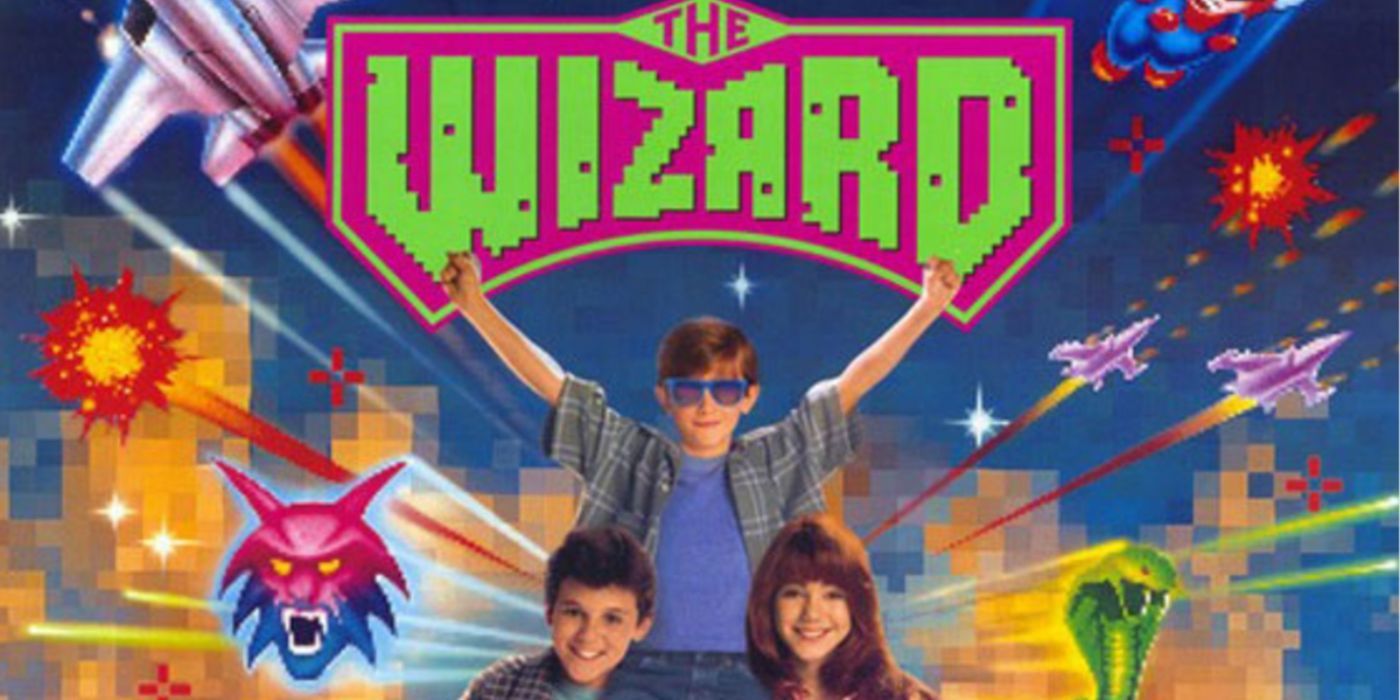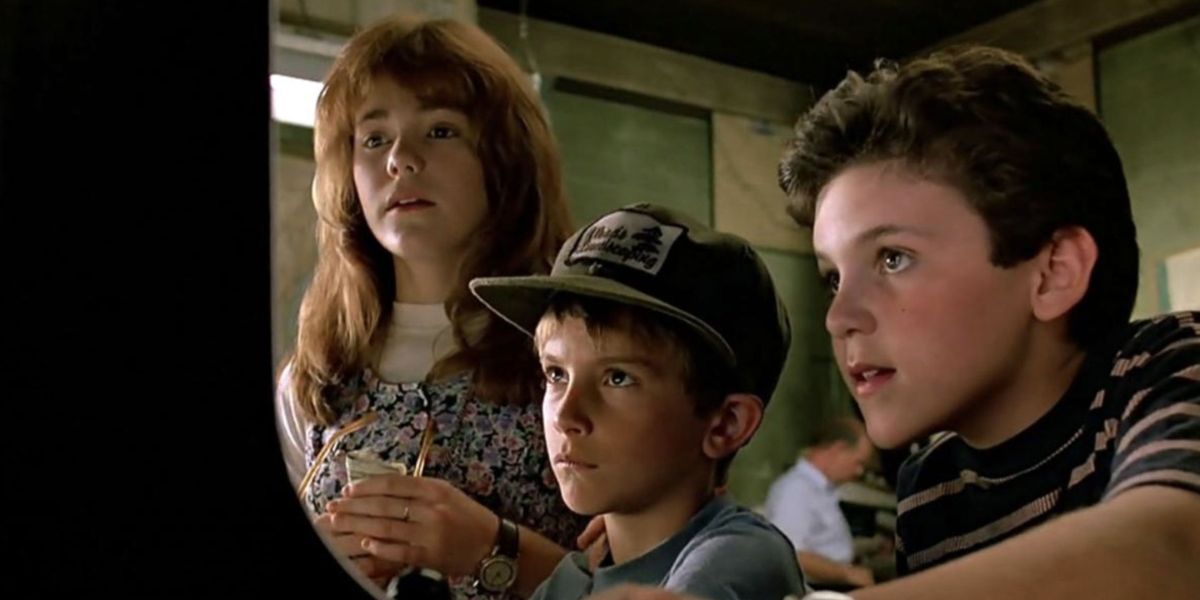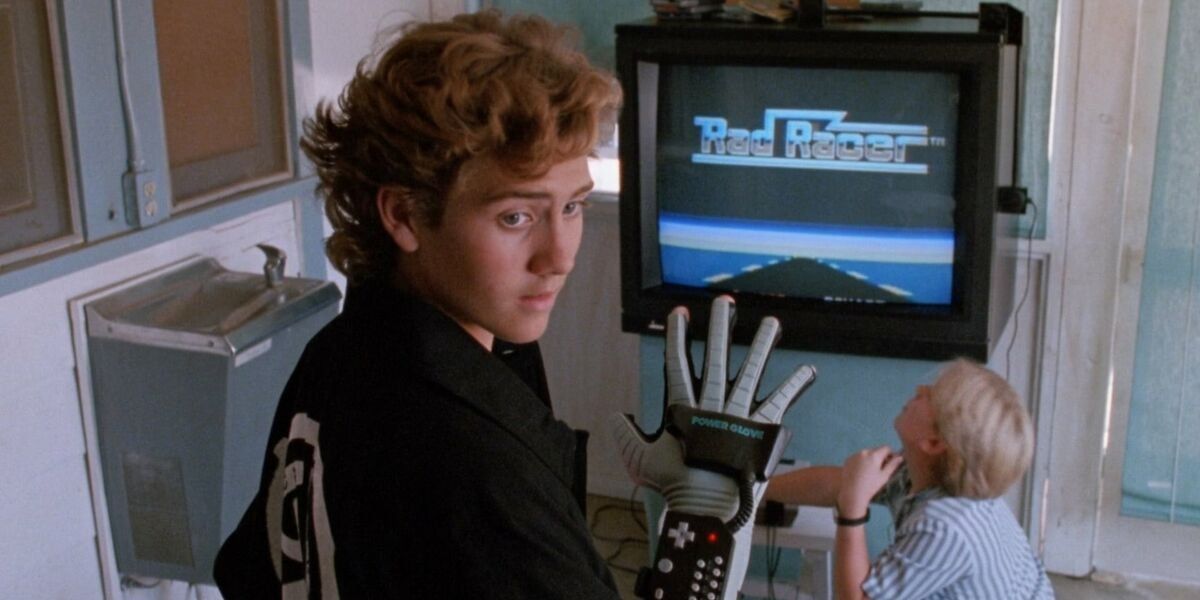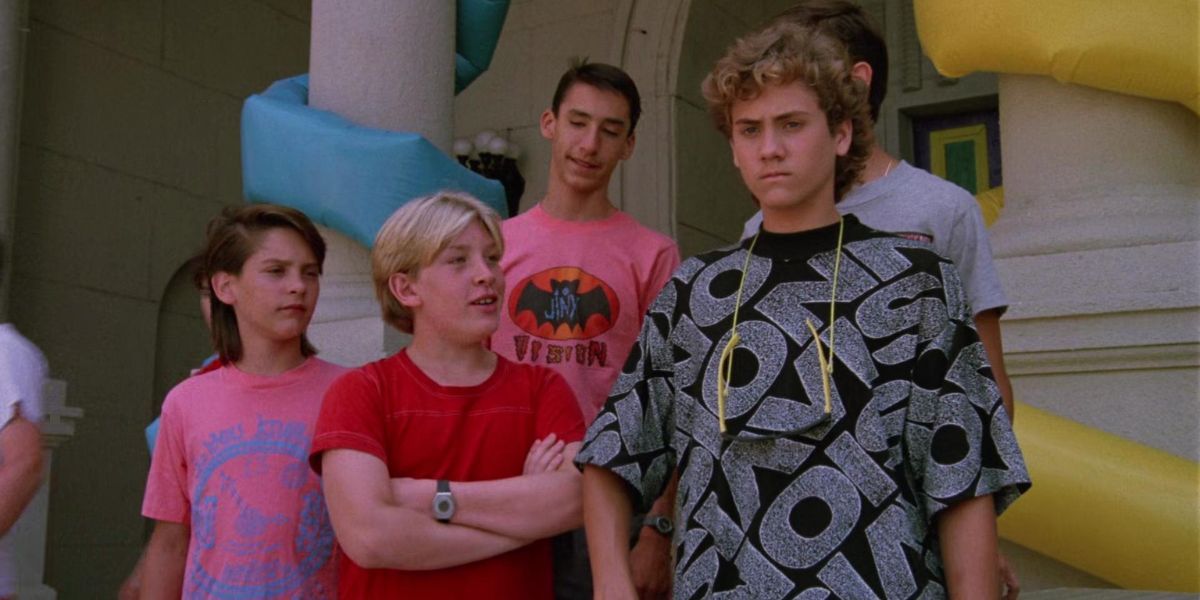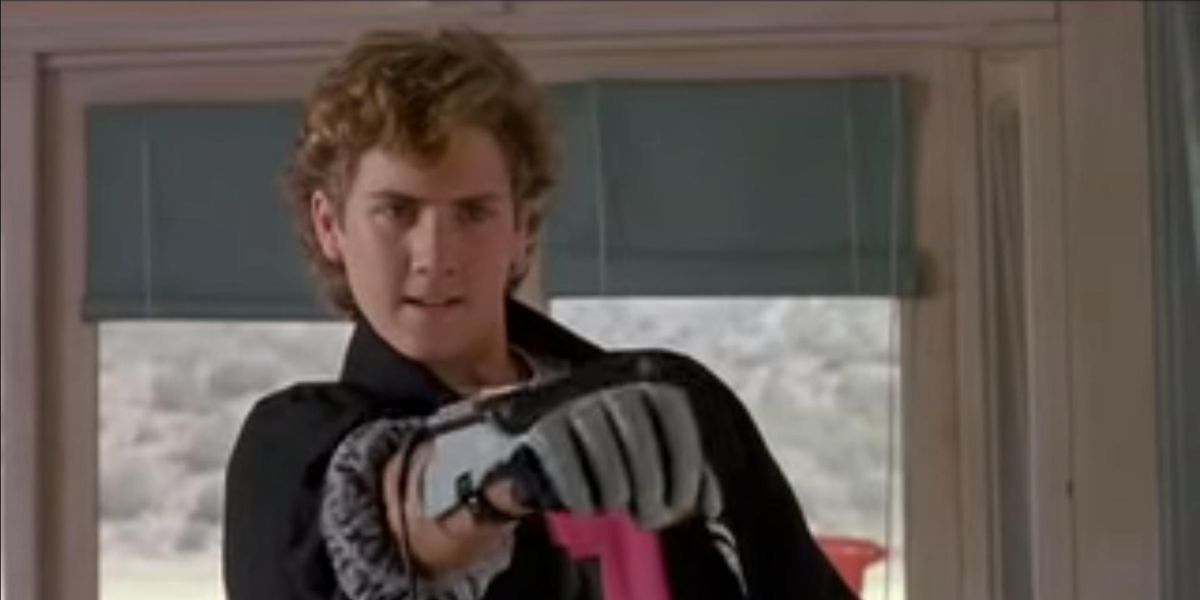There’s no shortage of iconic video game moments in film and television. Tony Soprano kicks his son's ass at a late-night game of Mario Kart 64. Tupac’s character has his game of Street Fighter perpetually interrupted throughout Juice. In an episode of Seinfeld, George purchases a Frogger arcade machine to preserve his high score from his teenage years. Meanwhile, flicks like Tron and WarGames, which center their plots around fictional games, made video games a thing of horror by escalating the consequences of gaming to matters of life and death. The 1989’s cult sensation The Wizard, though, is the first to bring the glory of gaming to the big screen. Tying an iconic roster of retro games into a narrative about the all-pervading power of gaming, The Wizard is a wholesome bit of old-school fun.
Todd Holland, who would later go on to helm episodes of Twin Peaks, Malcolm in the Middle, and The Larry Sanders Show among many others, directed The Wizard based off a script by David Chisholm. The premise is simple: left alone to wander the deserts in near-wordless solitude like Harry Dean Stanton in Paris, Texas, a young boy named Jimmy Woods (Luke Edwards) is quickly committed to a mental hospital due to his emotional trauma and his "fixation with building and stacking things." Before long, Corey (Fred Savage), a contender for the best half-brother in the world, busts his little bro out from the institution in the back of a Hostess Wonder Bread delivery truck. So begins a cross-country journey to Los Angeles where Jimmy tests his newfound video game talents in a tournament called Video Armageddon. With an older brother Nick (Christian Slater), a father (Beau Bridges), and an overly eager bounty hunter (Will Seltzer) on their tails, Jimmy and Corey meet a runaway girl named Haley (Jenny Lewis) and weave their way through the American countryside in hopes to earn the title of the Top Gamer in all the lands.
Its Heart Is What Makes 'The Wizard' So Great
Based loosely on the concept of bringing Tommy into the digital world by replacing pinball with video games, The Wizard follows Jimmy as he attempts to find peace in his life through gaming. With an expression fixed in a blank stare, he spends most of his time clicking away at arcade game buttons and levers, blinking wildly all the while. His lines of dialogue not consisting solely of the word California can be counted on two hands. None of this makes for the most gripping characterization, but does that matter when all is said and done? The Wizard is a redemption tale, one full of heart and sentimentality. This little fellow has some serious weight on his shoulders, and once he learns he’s pretty damn good at gaming, he finds an opportunity to finally go to California.
Stakes inevitably escalate with the arrival of The Wizard’s primary antagonist, a rival gaming prodigy named Lucas (Jackey Vinson). He’s got all the advantages: access to the entirety of Nintendo’s gaming catalogue, a grinning posse of lackeys and henchmen to follow him around, and the much coveted Nintendo Power Glove (more on that later). Unfortunately for Lucas, none of this matters. He doesn’t have the same raw talent as Jimmy. All the money in the world can’t buy him the kind of skills that Jimmy seems to perspire in his sleep. He doesn’t have the heart, and he wants to win for all the wrong reasons (i.e. glory, bragging rights). Jimmy’s bound to win because he’s fighting for something. He’s playing because that’s what he’s born to do, and only through winning can he avoid being recommitted to the mental institution. (Alright, maybe The Wizard’s logic is lacking, but bear with it.)
'The Wizard' Has No Shortage of Golden Era Games
A more cynical writer than I might dismiss The Wizard as one long meandering advertisement for Nintendo, an attempt to sell the newly-released Super Mario Bros. 3 and that goofy-ass Power Glove to an American audience. (Did anybody even own that goddamn thing?) Sure, much of The Wizard centers itself around the idea of Nintendo games being something you absolutely have to have, and Nintendo commercials of the era shared a certain goal of making the games look pretty damn cool and intense as all hell, but there’s something undeniably wholesome about The Wizard. Even if the Nintendo-heavy product placement feels comically forced—“I love the Power Glove...it’s so bad,” mutters Lucas in one scene—it ultimately just makes The Wizard feel more charmingly of its time. Possibly in an attempt to sell subscriptions to the now defunct Nintendo Power magazine, The Wizard writes the publication into the script, allowing it to play a pivotal role in Jimmy’s skills. “I got these Power magazines so we can teach him the secret tricks in each game,” Haley says hopefully to the boys. Salesmanship included, there’s no harm done. It’s all a crucial part of the video game scene. After all, those magazines did have some fantastic tips and tricks!
Part of what makes The Wizard such a treat to watch in recent years is its showcase of the products from Nintendo’s Golden Age. There’s Ninja Gaiden! Castlevania II: Simon’s Quest! Teenage Mutant Ninja Turtles! Some game called China Gate! All the classics are fairly represented! As little Jimmy tears his way across half the arcade halls of the Pacific Southwest, he masters the greater part of the Nintendo catalogue. Of course, it’s not without the help of their guardian angels over at the Nintendo Power Hotline, who offer help to any gamer lost in their way. It all culminates in a narrative climax where Jimmy plays a competitive game of Super Mario in front of a sprawling crowd of spectators with uncontainable excitement. Who wins and by how much matters to this crowd, and they watch the game unfold with the kind of passion you’d see at the Super Bowl, or the FIFA World Cup.
Maybe it is admittedly a little suspicious—even outright unbelievable—that this little goofball’s able to find the magical whistle on his first time playing the game, but these are just minor details in the grand scheme of things. It’s just too much fun to see that jerk Lucas lose gracelessly in front of a massive crowd.
‘The Wizard’ Teaches Us About the Connections Made By Video Games
Throughout The Wizard, video games bring people together. Jimmy’s skills are what initially pique Haley’s interest and convince her to accompany the boys on their journey. They’re also what—spoiler alert!—ultimately bring Jimmy’s family together in order to work on overcoming their shared grief.
On a more plausible, less eccentric level, there are moments in The Wizard in which characters find common ground through gaming. While hot on the trail of Jimmy and company, Nick and his dad spend a night at a one-bed motel and try to talk about the boy. Dad seems evasive on the subject of Jimmy’s late twin sister, who died in a drowning accident and left Jimmy with his muteness and surplus of quirks. Nick storms out of the room, frustrated at his dad’s unwillingness to communicate, and returns with an NES and a copy of Teenage Mutant Ninja Turtles to help blow off some steam. Dad talks a lot of shit about how it “doesn’t take much intelligence to play,” but lo and behold, when Nick wakes the next morning, he finds his dad mashing away at the buttons, all bug-eyed, sweaty, and quivering with excitement.
If the scene is played largely for laughs, there’s still a wholesome implication behind it. Father and son, their relationship strained and their love unexpressed, have found a mutual joy. Dad once knocked Nintendo, but once he actually gave it a try, he had a hell of a time. He learned not to knock it before he tries it. What’s to stop them (and Jimmy, Corey, and even Haley...why not?) from playing video games together into the future, using them as a bridge to find the connection they’ve long been missing? It seems like a natural opportunity for a father and son, whose ability to communicate leaves much to be desired, to take an easy, laid-back approach to spending time together. There’s no pressure to talk about pesky feelings—at least not at first. They’ve just gotta shut up and play. They might just become closer for it. That Dad learns the merit of video games also serves as an opportunity for him to be a better father. Later, when Jimmy wins the Video Armageddon, he’s genuinely proud of his son.
In 'The Wizard,' Video Games Have Genuine Merit
Nostalgia and sentimentality aside, The Wizard also makes a genuine case for the therapeutic potential of video games. Jimmy, a tragic figure plagued with an inescapable trauma and a lack of understanding from the adults in his life, finds an outlet through gaming. What The Wizard suggests is that, to many, video games matter, and they can serve as a crucial escape from the complicated problems of the real world. Jimmy takes naturally to video games presumably because of the high amount of attention they require. It’s something to help him step away from his overwhelming trauma. Playing games is something that he’s not only good at but notably talented with, and his skills are impressive enough to land him a hefty $50,000 prize. He’s not exactly socially adept, but goddamn if he can’t rack up some serious points in Double Dragon.
It takes all kinds of people to make the world, and even misfits like Jimmy, have their place. He might not be the kind to be the life of the party, but that’s okay. He doesn’t need to be. He’s got other talents. That’s part of what makes The Wizard so pure. It accepts Jimmy for who he is: a traumatized, creepy, flawed little guy who is better than average at playing video games. It’s through these games that he’s able to show that he’s not completely gone. He’s still there. If his inability to speak properly to others causes him to be an outcast, his knack for gaming proves to all who bear witness that he’s not so useless after all.
‘The Wizard’ Is a Wholesome Slice of Nostalgia
I wouldn’t particularly consider myself a gamer, but video games have nonetheless played a pivotal role in most of my life. I grew up playing a then-outdated NES system until my older brother finally got an N64 for Christmas in ’99 or so. I remember spending long summer days in the basement playing Ocarina of Time and Super Mario 64. I remember playing Tiny Toons Adventures on an NES and collecting 11 carrots in order to face Duck Vader in the secret level. The stakes were never as dramatic for me as they are in the climax of The Wizard, but they might as well have been. It often felt like they were.
At the end of the day, The Wizard isn’t a masterclass in storytelling, nor is it a feat of technological advancement in the field of filmmaking. Instead, The Wizard is a nice, corny little look back to the way games once were. For retro gamers and audiences from a certain era, The Wizard will conjure a warm sense of nostalgia for the days of 16-bit graphics and billfold-sized game cartridges. Maybe watching a bunch of kids poorly play Super Mario Bros. 3 doesn’t make for the most exhilarating climax in all cinema, but hey: it did make me want to dust off my Switch and play some virtual console for old times’ sake. It felt nice, inviting, like reminiscing on old grade school memories with a friend you hardly see anymore, and there’s something truly magical about that.
P.S. Todd Holland: release the goddamn 150-minute director's cut!

